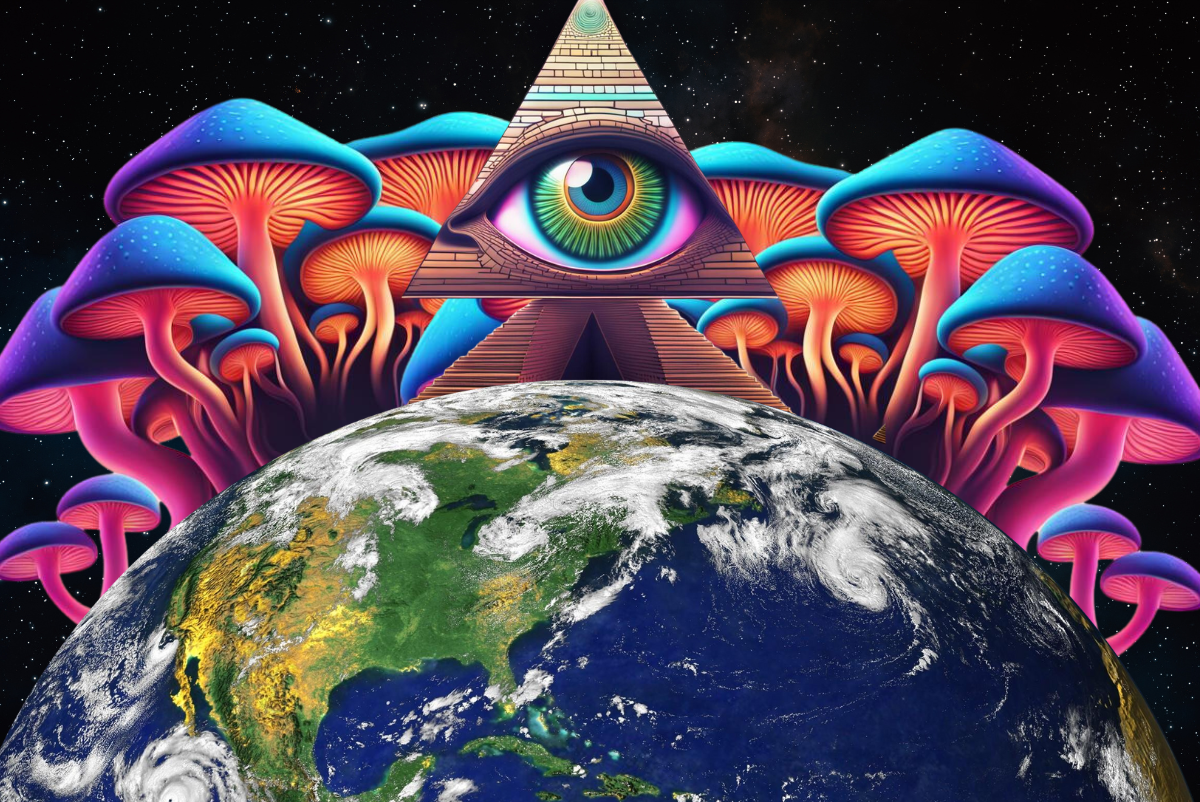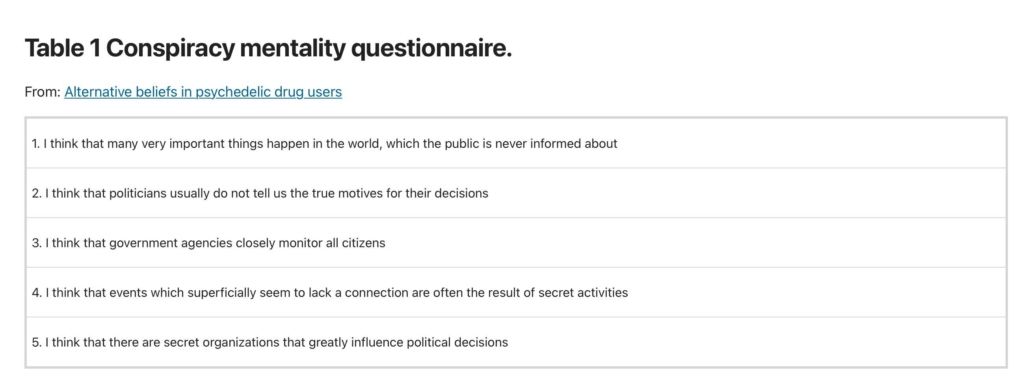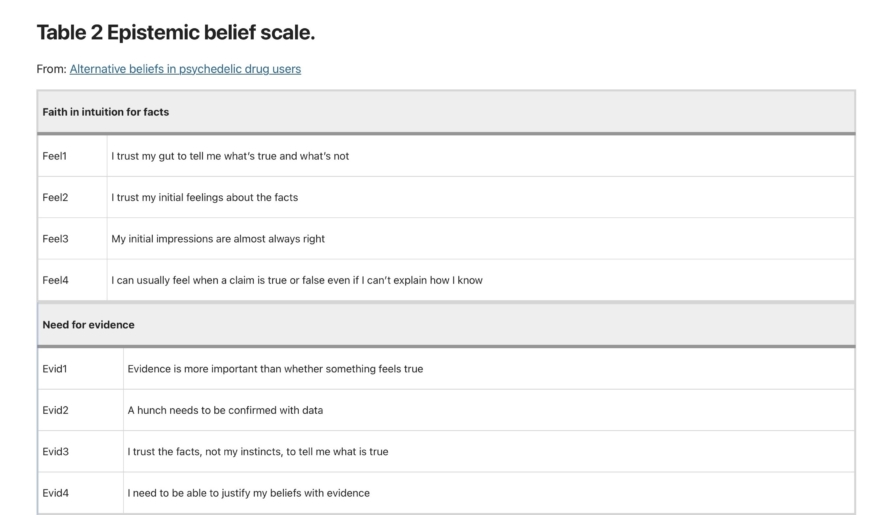
Recently, a group of researchers decided to explore the question, ”Are there potential associations between psychedelic exposure and the inclination to affirm alternative views?”
To explore this potential link, researchers sent out a “Conspiracy Mentality Questionnaire” to 392 participants, all of who had participated in a previous study examining the links between psychedelic use and schizotypy, a concept referring to certain personality traits that hold mild characteristics of schizophrenia, such as unusual beliefs and behaviors. Of those 392 participants, 233 had recently used a classical psychedelic substance.
The Conspiracy Mentality Questionnaire was categorized as ”a measure of individual differences in conspiratorial thinking and ideation, which for the purpose of this study was used to measure beliefs in alternative facts.” Specifically, the CMQ in this study measured one’s:
- Reliance on intuition for forming factual beliefs.
- Inclination to substantiate claims with empirical evidence.
- Their perception of factual information as influenced by political factors.
All of the mentioned tendencies are considered ”epistemic beliefs”, as categorized by the Epistemic Belief System, which includes an individual’s personal beliefs and attitudes towards learning and knowledge, which tend to shape their approach to acquiring information.



In addition to exploring the associations between psychedelics and ”non-conformist thinking styles”, researchers also explored the associations between the use of other substances, specifically alcohol use, and the formulation of alternative view points.
Here were the key findings:
There was a moderate-positive association between psychedelic use and beliefs in alternative facts.
As hypothesized, the researchers found that there was indeed a link between psychedelic use and beliefs in alternative facts, meaning conspiracy theories and unconventional viewpoints (ie: the earth is flat, the moon landing was fake, etc.)
There was a moderate-positive association between psychedelic use and the idea that factual information is politically influenced.
This indicates that those with a history of psychedelic use tend to view factual information as being influenced by political factors.
There was no association between favoring one’s intuition over evidence when confirming facts.
Contrary to expectations, psychedelic users did not display a preference for intuitive beliefs over evidence-based ones, as observed in the study.
Alcohol was negatively associated with beliefs in alternative facts.
This suggests that alcohol was linked to a reduced inclination to endorse non-conventional beliefs, a finding supported by the research’s results.
Final Thoughts
It’s evident that psychedelic users tend to deploy more skepticism to widely accepted facts. Whether this skepticism is considered healthy or concerning, is up to interpretation. None-the-less, the findings in this study suggest that psychedelic use is associated with ”non-conformist views”, specifically, with beliefs in alternative facts and the belief that facts are influenced by political agendas. According to the researchers, “these findings are unprecedented in connection to current scientific research. As a result, this study represents a first step towards filling the knowledge gap regarding the associations between different drug use patterns and information processing.”
You may also like: Can Personality Traits Affect the Psychedelic Experience?





